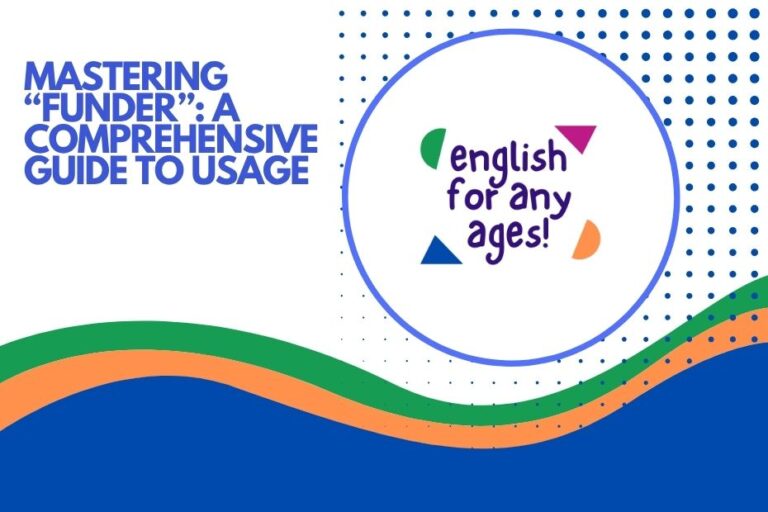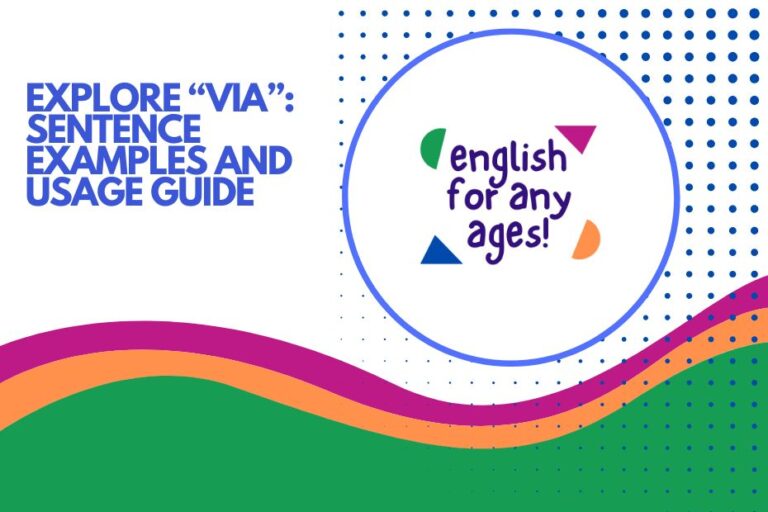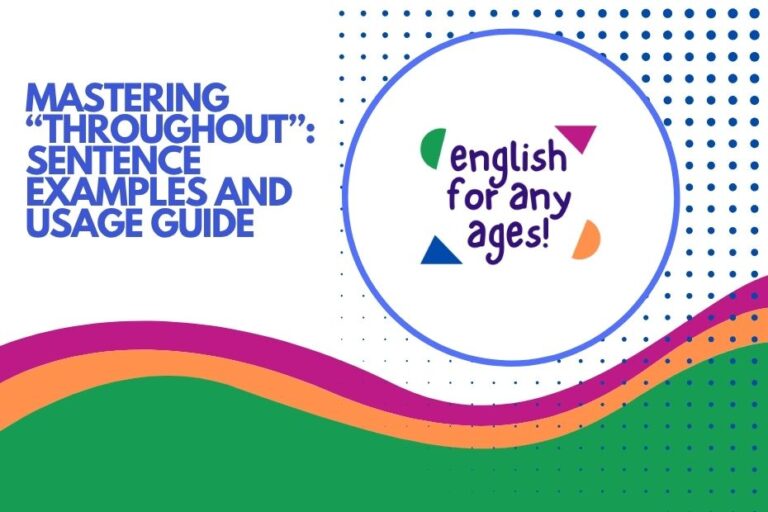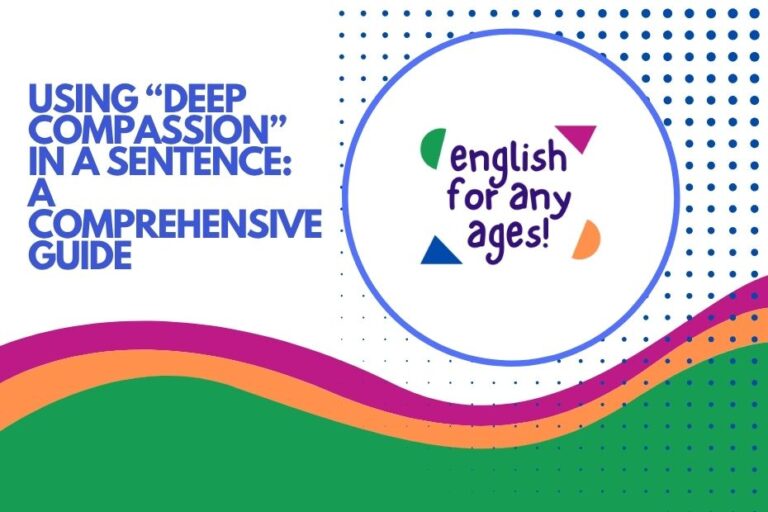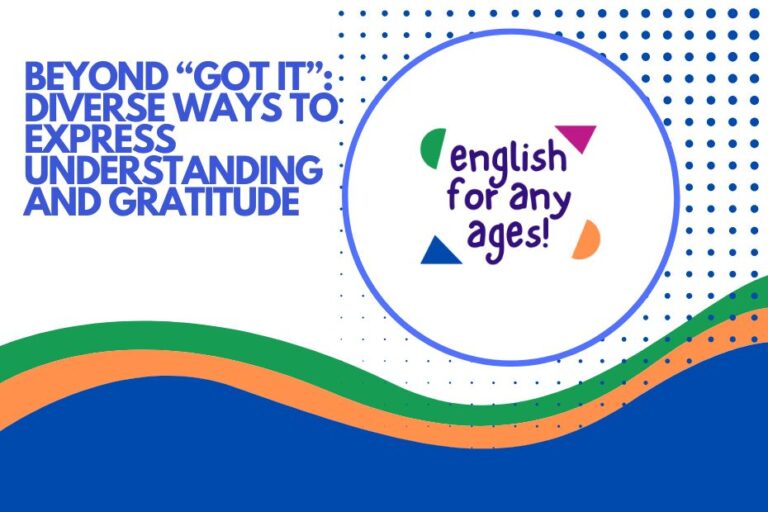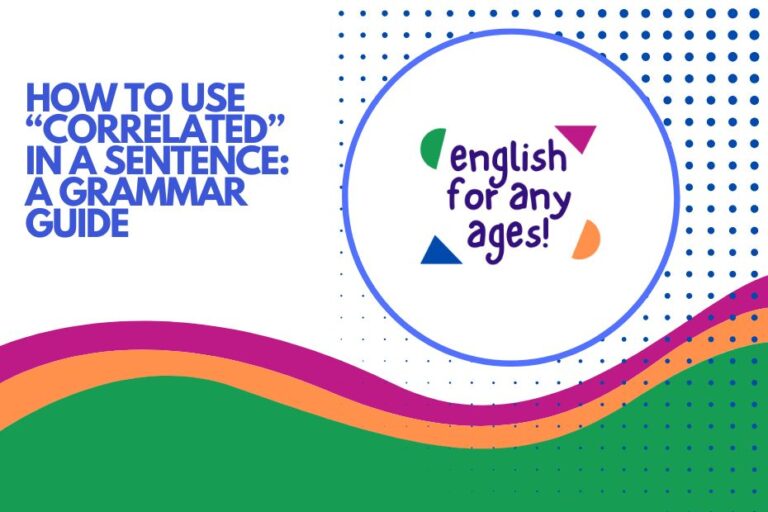Learn About “During”: Sentence Examples and Usage Guide
Understanding how to use prepositions correctly is crucial for clear and effective communication in English. The preposition “during” is particularly useful for indicating when something happens within a specific period of time.
This article provides a comprehensive guide to using “during,” complete with numerous examples, rules, and practice exercises. Whether you’re a beginner or an advanced learner, this resource will help you master the nuances of “during” and improve your overall English proficiency.
Table of Contents
- Introduction
- Definition of “During”
- Structural Breakdown: Using “During” in Sentences
- Types of Periods Specified by “During”
- Sentence Examples with “During”
- Usage Rules for “During”
- Common Mistakes with “During”
- Practice Exercises
- Advanced Topics: Nuances and Complexities
- Frequently Asked Questions (FAQ)
- Conclusion
Introduction
The preposition “during” is a fundamental element of English grammar, essential for specifying when events or actions occur within a defined timeframe. Mastering its use is vital for constructing clear, precise, and grammatically correct sentences.
This comprehensive guide delves into the intricacies of “during,” providing a detailed explanation of its meaning, structure, and application across various contexts. By understanding how to effectively use “during,” learners can enhance their ability to express temporal relationships and improve their overall communication skills.
This article is designed for English language learners of all levels, from beginners seeking a foundational understanding to advanced students aiming to refine their grasp of nuanced grammar. Through detailed explanations, numerous examples, and practical exercises, this resource will equip you with the knowledge and skills necessary to confidently and accurately use “during” in your writing and speech.
Definition of “During”
The preposition “during” indicates that something happens throughout the course or duration of a specific period of time. It specifies when an event or action takes place within a defined timeframe, rather than before or after it. “During” connects a noun phrase (representing the period) to another part of the sentence, indicating the timing of an action or state.
In simpler terms, “during” tells us that one thing happened while another thing was in progress. The period specified by “during” can be a specific event, a season, a time of day, or any other definable duration.
The key is that the action or event described occurs within the boundaries of that period.
Classification and Function
“During” is classified as a preposition of time. Its primary function is to establish a temporal relationship between two elements in a sentence: the action or event and the period during which it occurs. Prepositions of time help to specify when something happens, and “during” is particularly useful for indicating that something happens throughout a particular duration.
Contexts of Use
“During” can be used in a wide range of contexts, including:
- Describing events: “The power went out during the storm.”
- Referring to periods of time: “She studied diligently during the semester.”
- Indicating activities: “He fell asleep during the movie.”
- Specifying seasons: “Many birds migrate during the winter.”
- Discussing historical periods: “Life was difficult during the Great Depression.”
Structural Breakdown: Using “During” in Sentences
The basic structure of a sentence using “during” is as follows:
[Main Clause] + during + [Noun Phrase (Period of Time)]
The main clause describes the action or event, and the noun phrase specifies the period of time. “During” connects these two elements, indicating the temporal relationship between them.
For example:
- Main Clause: “The phone rang”
- During: “during”
- Noun Phrase (Period of Time): “the meeting”
- Complete Sentence: “The phone rang during the meeting.”
The noun phrase that follows “during” can be a simple noun (e.g., “the night”), a noun phrase with modifiers (e.g., “the long summer vacation”), or a gerund phrase (e.g., “during the planning phase”). The key is that it represents a specific period of time.
It’s important to note that “during” is typically followed by a noun or noun phrase. If you want to use a verb, you’ll usually need to use “while” or another conjunction.
Types of Periods Specified by “During”
“During” can be used to refer to various types of periods, including:
- Specific Events: Sporting events, concerts, meetings, etc.
- Periods of Time: Days, weeks, months, years, etc.
- Activities: Movies, classes, meals, etc.
- Seasons: Spring, summer, autumn, winter.
- Historical Periods: The Renaissance, the Victorian era, etc.
The specific type of period depends on the context and the meaning you want to convey. The key is to choose a noun phrase that accurately represents the duration during which the action or event occurred.
Sentence Examples with “During”
Here are numerous examples of sentences using “during,” organized by category.
General Usage
This table provides a variety of examples showcasing the general usage of “during” in different contexts.
| # | Sentence |
|---|---|
| 1 | The birds sing beautifully during the spring. |
| 2 | I usually feel more energetic during the morning. |
| 3 | The library is very quiet during the weekdays. |
| 4 | She learned a lot during her travels. |
| 5 | He met his wife during college. |
| 6 | They stayed indoors during the storm. |
| 7 | The children played happily during the summer vacation. |
| 8 | Traffic is usually heavy during rush hour. |
| 9 | I try to relax during my lunch break. |
| 10 | The museum is closed during the winter months. |
| 11 | She took many photographs during her trip to Italy. |
| 12 | He often thinks about his childhood during quiet moments. |
| 13 | The city is especially beautiful during the holiday season. |
| 14 | We had a power outage during the thunderstorm. |
| 15 | She felt nervous during the presentation. |
| 16 | The company experienced significant growth during the past year. |
| 17 | He made several important discoveries during his research. |
| 18 | The atmosphere was tense during the negotiations. |
| 19 | She received many compliments during the evening. |
| 20 | The garden is full of flowers during the summer. |
| 21 | Many people enjoy outdoor activities during the warmer months. |
| 22 | The project encountered several challenges during its development. |
| 23 | He remained calm during the crisis. |
| 24 | She felt a surge of energy during the performance. |
| 25 | The team worked tirelessly during the final weeks of the project. |
| 26 | I learned a lot about different cultures during my travels abroad. |
| 27 | The artist found inspiration during his time in nature. |
| 28 | The audience remained silent during the emotional scene. |
| 29 | He made a lasting impression during his internship. |
| 30 | The city comes alive during the night. |
Referring to Events
This table provides examples specifically related to using “during” when referring to events.
| # | Sentence |
|---|---|
| 1 | I fell asleep during the movie. |
| 2 | She took notes during the lecture. |
| 3 | He scored a goal during the game. |
| 4 | The power went out during the concert. |
| 5 | They announced the winner during the ceremony. |
| 6 | The earthquake struck during the festival. |
| 7 | He proposed to her during the wedding. |
| 8 | The speaker made several jokes during the presentation. |
| 9 | The audience applauded enthusiastically during the performance. |
| 10 | The negotiations broke down during the meeting. |
| 11 | The fire alarm went off during the conference. |
| 12 | He spilled his coffee during the interview. |
| 13 | The band played their most popular song during the encore. |
| 14 | The argument started during the dinner party. |
| 15 | The police arrived during the robbery. |
| 16 | The actor forgot his lines during the play. |
| 17 | She received a standing ovation during the speech. |
| 18 | The rain started during the picnic. |
| 19 | He tripped and fell during the race. |
| 20 | The clown entertained the children during the circus. |
| 21 | The couple exchanged vows during the ceremony. |
| 22 | Celebrations continued late into the night during the festival. |
| 23 | The athlete pushed through the pain during the competition. |
| 24 | The artist unveiled his masterpiece during the exhibition. |
| 25 | The audience was captivated during the storytelling session. |
Referring to Seasons
This table provides examples using “during” to refer to specific seasons.
| # | Sentence |
|---|---|
| 1 | The flowers bloom during the spring. |
| 2 | Many people go swimming during the summer. |
| 3 | The leaves change color during the autumn. |
| 4 | It snows frequently during the winter. |
| 5 | Birds migrate during the autumn and spring. |
| 6 | The days are longer during the summer. |
| 7 | The nights are colder during the winter. |
| 8 | Allergies are common during the spring. |
| 9 | Harvest festivals are celebrated during the autumn. |
| 10 | Skiing is a popular activity during the winter. |
| 11 | The bears hibernate during the winter months. |
| 12 | Farmers harvest their crops during the autumn. |
| 13 | Many animals give birth to their young during the spring. |
| 14 | The weather is unpredictable during the spring. |
| 15 | Tourists flock to the beaches during the summer. |
| 16 | The air is crisp and cool during the autumn. |
| 17 | People often stay indoors during the winter storms. |
| 18 | Wildfires are a concern during the dry summer months. |
| 19 | The trees are bare during the winter. |
| 20 | The gardens are most vibrant during the spring. |
| 21 | Days are shorter during the winter. |
| 22 | The sun is strongest during the summer. |
| 23 | The winds are strongest during the autumn. |
| 24 | Growth is rapid during the spring. |
| 25 | Many festivals take place during the summer. |
Referring to Activities
This table provides examples using “during” to refer to specific activities.
| # | Sentence |
|---|---|
| 1 | I check my email during my lunch break. |
| 2 | She answers questions during the Q&A session. |
| 3 | He takes notes during the meeting. |
| 4 | They chat quietly during the coffee break. |
| 5 | The children laugh during the play. |
| 6 | The chef prepares the meal during the cooking class. |
| 7 | The students study hard during the exam period. |
| 8 | The musicians practice during the rehearsal. |
| 9 | The dancers perform during the show. |
| 10 | The artists paint during the workshop. |
| 11 | The gardeners tend to the plants during the gardening session. |
| 12 | The athletes train rigorously during the training camp. |
| 13 | The writers write diligently during the writing retreat. |
| 14 | The scientists conduct experiments during the research project. |
| 15 | The doctors make rounds during the hospital shift. |
| 16 | The teachers grade papers during the evening. |
| 17 | The counselors provide support during the therapy session. |
| 18 | The volunteers assist during the community event. |
| 19 | The librarians help patrons during the library hours. |
| 20 | The engineers troubleshoot problems during the construction project. |
| 21 | The pilots navigate the aircraft during the flight. |
| 22 | The programmers debug the code during the software development. |
| 23 | The actors rehearse their lines during the play production. |
| 24 | The journalists report the news during the press conference. |
| 25 | The auditors review the finances during the audit. |
Referring to Historical Periods
This table provides examples using “during” to refer to specific historical periods.
| # | Sentence |
|---|---|
| 1 | Life was difficult during the Great Depression. |
| 2 | Many scientific advancements were made during the Renaissance. |
| 3 | The Roman Empire expanded significantly during its peak. |
| 4 | There were many social changes during the Victorian era. |
| 5 | The United States fought in several wars during the 20th century. |
| 6 | Europe experienced significant political upheaval during the French Revolution. |
| 7 | Significant architectural innovations occurred during the Middle Ages. |
| 8 | The world experienced rapid industrialization during the Industrial Revolution. |
| 9 | Many artistic masterpieces were created during the Baroque period. |
| 10 | Colonialism had a profound impact on many countries during its height. |
| 11 | Significant philosophical developments took place during the Enlightenment. |
| 12 | The Cold War shaped global politics during the late 20th century. |
| 13 | The discovery of agriculture revolutionized human societies during the Neolithic period. |
| 14 | Many empires rose and fell during ancient history. |
| 15 | The Black Death had a devastating impact on Europe during the 14th century. |
| 16 | The Protestant Reformation led to significant religious changes during the 16th century. |
| 17 | The American Civil War had a lasting impact on the United States during the 19th century. |
| 18 | The invention of the printing press transformed society during the Renaissance. |
| 19 | The two World Wars reshaped the global landscape during the 20th century. |
| 20 | The Space Race spurred technological innovation during the Cold War. |
| 21 | The concept of democracy spread during the Age of Enlightenment. |
| 22 | Feudalism was the dominant social system during the Middle Ages. |
| 23 | The scientific method was developed during the Scientific Revolution. |
| 24 | Many advancements in medicine were made during the 20th century. |
| 25 | The concept of human rights gained prominence during the post-World War II era. |
Usage Rules for “During”
Here are some key rules to remember when using “during”:
- “During” is followed by a noun or noun phrase: It should be followed by a noun or a noun phrase that specifies the period of time.
- Avoid using “during” with a clause: If you need to use a clause (a subject and a verb), use “while” or “when” instead.
- “During” indicates that something happens within a period: It specifies that the action or event occurs at some point within the given timeframe.
Example of correct usage: “I studied during the evening.”
Example of incorrect usage: “I studied during I was tired.” (Correct: “I studied while I was tired.”)
Using “During” vs. “While”: “During” and “while” both express time relationships, but they are used differently. “During” is followed by a noun or noun phrase, while “while” is followed by a clause (a subject and a verb). Consider these examples:
- During: “I listened to music during my workout.” (workout is a noun)
- While: “I listened to music while I was working out.” (I was working out is a clause)
Common Mistakes with “During”
Here are some common mistakes to avoid when using “during”:
| Mistake | Incorrect Example | Correct Example |
|---|---|---|
| Using “during” with a clause | During I ate dinner, the phone rang. | While I was eating dinner, the phone rang. |
| Confusing “during” with “for” | I lived in Paris during three years. | I lived in Paris for three years. |
| Using “during” at the end of a sentence | The accident happened, during the storm. | The accident happened during the storm. |
Explanation of Mistakes:
- Using “during” with a clause: “During” requires a noun phrase, not a clause. Use “while” or “when” if you need to include a subject and a verb.
- Confusing “during” with “for”: “During” indicates when something happens, while “for” indicates how long something lasts. “During” is followed by an event or period, while “for” is followed by a length of time.
- Using “during” at the end of a sentence: “During” should be placed before the noun phrase it modifies, not at the end of the sentence.
Practice Exercises
Test your understanding of “during” with these practice exercises.
Exercise 1: Fill in the Blanks
Fill in the blanks with “during” or “while.”
| # | Question | Answer |
|---|---|---|
| 1 | I studied ______ the evening. | during |
| 2 | ______ I was studying, the phone rang. | While |
| 3 | She worked ______ the summer. | during |
| 4 | ______ she was working, she listened to music. | While |
| 5 | They traveled ______ their vacation. | during |
| 6 | ______ they were traveling, they took many photos. | While |
| 7 | He slept ______ the movie. | during |
| 8 | ______ he was sleeping, he snored loudly. | While |
| 9 | We ate dinner ______ the sunset. | during |
| 10 | ______ we were eating dinner, we talked about our day. | While |
Exercise 2: Correct the Mistakes
Correct the sentences that contain errors in the use of “during.” If the sentence is correct, write “Correct.”
| # | Question | Answer |
|---|---|---|
| 1 | During I watched TV, I fell asleep. | While I was watching TV, I fell asleep. |
| 2 | I visited the museum during the afternoon. | Correct |
| 3 | She lived in Italy during five years. | She lived in Italy for five years. |
| 4 | He read a book during the flight. | Correct |
| 5 | The concert was amazing, during the night. | The concert was amazing during the night. |
| 6 | During I exercised, I listened to a podcast. | While I was exercising, I listened to a podcast. |
| 7 | We had a picnic during the weekend. | Correct |
| 8 | They learned a lot, during the seminar. | They learned a lot during the seminar. |
| 9 | She worked hard during her studies. | Correct |
| 10 | During the play, he forgot his lines. | Correct |
Exercise 3: Sentence Completion
Complete the following sentences using “during” and an appropriate noun phrase.
| # | Question | Answer |
|---|---|---|
| 1 | I felt nervous ____________________. | I felt nervous during the interview. |
| 2 | She learned a lot ____________________. | She learned a lot during her travels. |
| 3 | He scored a goal ____________________. | He scored a goal during the game. |
| 4 | They stayed indoors ____________________. | They stayed indoors during the storm. |
| 5 | We visited many museums ____________________. | We visited many museums during our trip to Europe. |
| 6 | The birds sing beautifully ____________________. | The birds sing beautifully during the spring. |
| 7 | I try to relax ____________________. | I try to relax during my lunch break. |
| 8 | She received many compliments ____________________. | She received many compliments during the evening. |
| 9 | He remained calm ____________________. | He remained calm during the crisis. |
| 10 | The city comes alive ____________________. | The city comes alive during the night. |
Advanced Topics: Nuances and Complexities
For advanced learners, it’s important to understand some of the more nuanced aspects of using “during.”
Formal vs. Informal Usage: “During” is generally considered a formal preposition. In informal contexts, you might use “in” or “over” instead. For example:
- Formal: “The museum is closed during the winter months.”
- Informal: “The museum is closed in the winter months.”
“During” with Gerunds: While “during” is typically followed by a noun phrase, it can also be followed by a gerund phrase (a verb ending in “-ing” that functions as a noun) in certain contexts. However, this usage is less common.
- Example: “During the planning of the event, we encountered several challenges.”
Using “Throughout” vs. “During”: “Throughout” indicates that something happens from the beginning to the end of a period, while “during” simply indicates that it happens at some point within the period. For example:
- During: “It rained during the afternoon.” (It rained at some point in the afternoon.)
- Throughout: “It rained throughout the afternoon.” (It rained continuously from the beginning to the end of the afternoon.)
Frequently Asked Questions (FAQ)
Here are some frequently asked questions about using “during”:
- What is the difference between “during” and “for”?
“During” specifies when something happens within a particular period of time, while “for” specifies the duration of an event or action. “During” is followed by an event or period, while “for” is followed by a length of time. For example, “I studied during the evening” (when) vs. “I studied for three hours” (how long).
- Can I use “during” with a clause?
No, “during” should not be used with a clause. Use “while” or “when” instead. For example, instead of saying “During I was eating dinner,” say “While I was eating dinner.”
- Is “during” formal or informal?
“During” is generally considered a formal preposition. In informal contexts, you might use “in” or “over” instead. However, “during” is appropriate for most writing and speaking situations.
- What type of word follows “during”?
“During” is typically followed by a noun or noun phrase that specifies the period of time. This noun phrase can be a simple noun (e.g., “the night”), a noun phrase with modifiers (e.g., “the long summer vacation”), or a gerund phrase (e.g., “during the planning phase”).
- How is “during” different from “throughout”?
“Throughout” indicates that something happens from the beginning to the end of a period, while “during” simply indicates that it happens at some point within the period. “Throughout” implies continuity or consistency, while “during” does not.
- Can “during” be used at the end of a sentence?
No, “during” should not be placed at the end of a sentence. It should be placed before the noun phrase it modifies. For example, instead of saying “The accident happened, during the storm,” say “The accident happened during the storm.”
- What are some synonyms for “during”?
Some synonyms for “during” include “in the course of,” “throughout,” “in,” and “while.” The best synonym to use depends on the specific context and the meaning you want to convey.
- Is it correct to say “during when”?
Saying “during when” is generally redundant and should be avoided. “During” already implies a timeframe, so adding “when” is unnecessary. Instead, choose either “during” followed by a noun phrase or “when” followed by a clause.
Conclusion
Mastering the use of “during” is fundamental for expressing temporal relationships accurately and effectively in English. This article has provided a comprehensive overview of “during,” covering its definition, structure, usage rules, common mistakes, and advanced nuances.
By understanding these concepts and practicing with the examples and exercises provided, you can confidently and accurately use “during” in your writing and speech.
Remember to focus on using “during” with noun phrases, avoiding its use with clauses, and distinguishing its meaning from similar prepositions like “for” and “throughout.” With consistent practice, you can refine your understanding of “during” and enhance your overall English proficiency. Keep practicing and don’t hesitate to review this guide as needed to solidify your knowledge.

